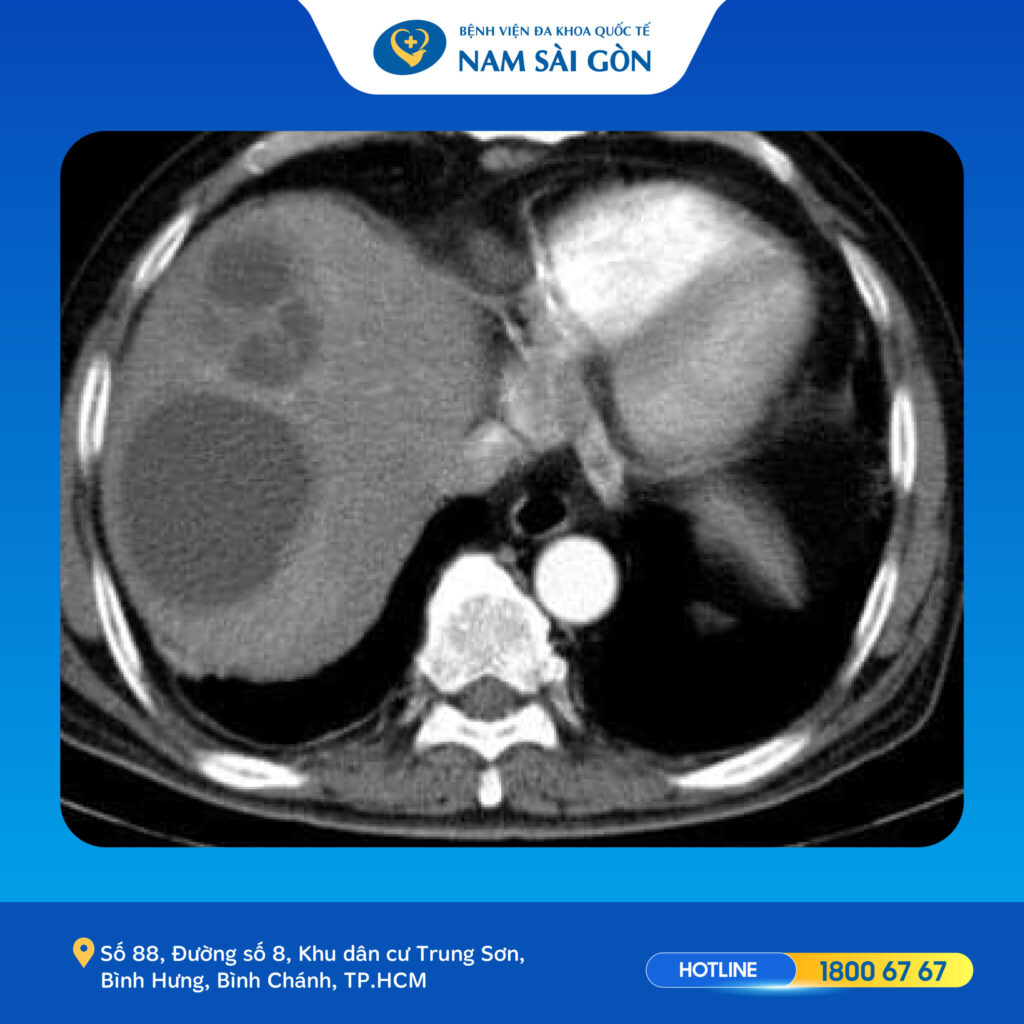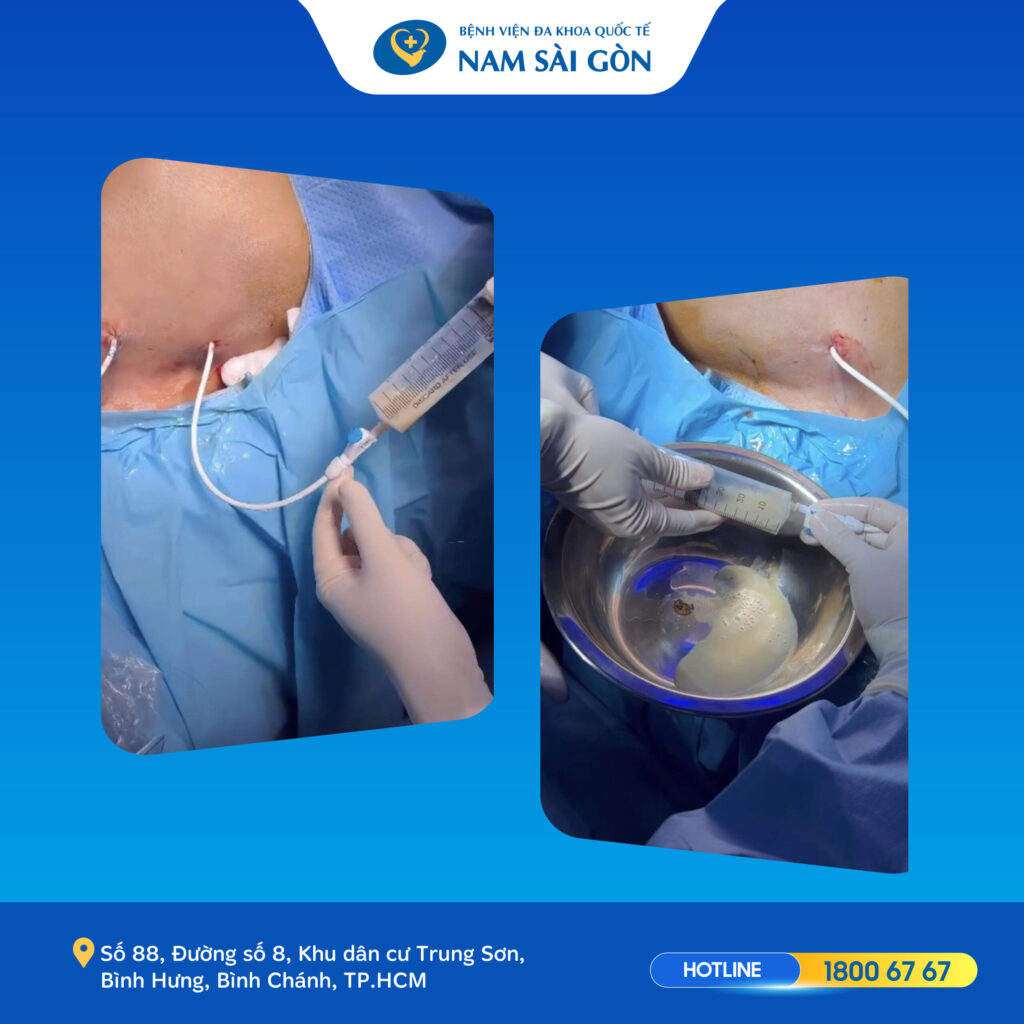TWO LARGE LIVER ABSCESSES DISCOVERED AFTER 8 DAYS OF HIGH FEVER
-
Author: BỆNH VIỆN ĐA KHOA QUỐC TẾ NAM SÀI GÒN
-
09/09/2023
-
113
Two large liver abscesses caused a 73-year-old man to experience persistent high fever for eight consecutive days, putting him at risk of abscess rupture into the pleural cavity or abdominal cavity — a life-threatening complication.

DISCOVERY OF TWO LARGE LIVER ABSCESSES THREATENING A PATIENT’S LIFE AFTER 8 DAYS OF HIGH FEVER
Doctors at the General Surgery Department of Nam Sai Gon International General Hospital recently treated the patient, Mr. N.H.P (73 years old, District 7), using ultrasound-guided percutaneous drainage, thereby avoiding the need for invasive open surgery.
The patient was admitted in a fatigued state, with continuous high fever and diarrhea for eight days. Clinical examinations and tests revealed significantly elevated infection markers and white blood cell count. Imaging identified two large liver abscesses, measuring 8×6 cm and 4×5 cm, respectively.

According to Dr. Nguyen Trung Duong, MMed, Specialist Level II, Deputy Head of the General Surgery Department:
“The abscesses were large and located in a high-risk area. If ruptured, they could have led to severe complications such as peritonitis or empyema, posing a direct threat to the patient’s life”.
The patient received intensive care in the Internal Medicine Department with antibiotics and supportive medications to control inflammation. Additional tests and blood cultures were conducted to determine the cause of the abscesses.
A multidisciplinary consultation between the General Surgery and Internal Medicine teams led to the decision to perform ultrasound-guided percutaneous drainage.
Ultrasound-guided percutaneous drainage is a modern, minimally invasive technique that allows for short procedure time, minimal trauma, and faster recovery. It only requires local anesthesia, reducing the need for general anesthesia and shortening hospitalization. It also helps reduce antibiotic use and treatment costs — Dr. Duong explained.
Within 45 minutes, the surgical team successfully drained over 500ml of thick, yellowish-white pus from the abscess. The abscess cavity was flushed, and samples were sent for bacterial culture and antibiotic susceptibility testing.

Thanks to the coordination between departments and an aggressive treatment plan, the patient’s condition improved significantly. Just two days after the procedure, test results stabilized, and the patient was discharged in good health.
Liver abscesses are dangerous conditions that can lead to severe complications such as peritonitis, pleural empyema, and even septicemia if not detected and treated promptly.
Dr. Duong emphasized: Anyone experiencing prolonged fever, fatigue, loss of appetite, jaundice, or severe pain in the right upper abdomen should seek medical attention immediately. Early intervention helps avoid dangerous complications caused by large or ruptured liver abscesses.
He also advised maintaining good hygiene practices, including eating thoroughly cooked food, avoiding raw vegetables and undercooked meat, washing hands regularly, and deworming periodically.
Nam Sai Gon International General Hospital
No. 88, Street No. 8, Trung Son Residential Area, Binh Hung Commune, Ho Chi Minh City.
Hotline: 18006767
info@nih.com.vn
Last updated: 09:36 01/12/2025






